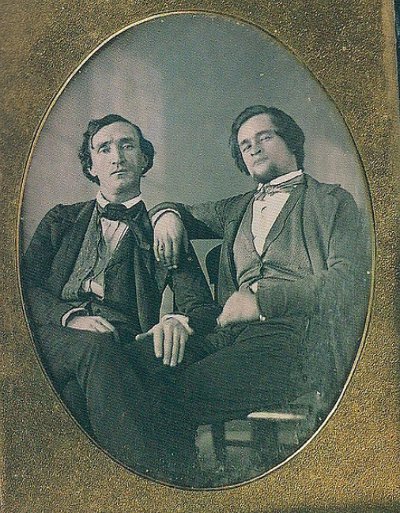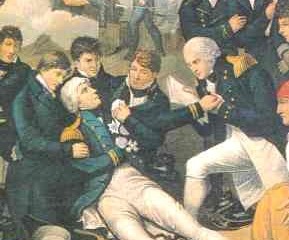
One of the dominant
tropes in modern storytelling is the love story. The hero needs his heroine,
and vice versa. It’s not just a motivational device, but an actual core
storytelling mechanism which is used for elements as diverse as curing or ameliorating
mental illness (As Good As Garden State Gets In A Silver Linings Playbook) to
saving the planet (The Fifth Element), to being the only thing necessary to
having a happy life (most romantic comedies).
Of course, we’re
talking heterosexual relationships. I’d argue that there are a few basic
reasons why this boy-girl dynamic is so prevalent, and why it is more so in the
late 20th / early 21st century than it has been at any
other point, particularly with respect to action films and other traditionally
“male” stories:
1) Freud
2) Increased cultural
cross pollination where action films now need to appeal to both men and women
3) The
general rise of and public acceptance of gay rights and homosexuality as a
lifestyle choice
Let’s focus on the last
point, because it’s the most immediately counterintuitive. Why would an
increased outward acceptance of homosexuality result in more on-screen hetero
relationships? Easy answer: because people are insecure. This, in turn, feeds
back into the first point, because thanks to Freud, everything is now about sex.
If homosexuality is
something which is pretty much kept behind closed doors, there’s no need to
worry about how “gay” you (or the films, or characters you’re watching) look. However,
if sexuality is a matter of public discourse, then you need to be sure that
everyone out there knows that you’re a man! A man’s man! But not in a gay way,
noooo sir. And likewise for the films you watch, and the characters you relate
to.
Look at the action
films of the ‘80s and ‘90s. The surge of gay rights awareness was followed by a
transformation in action films, as the solitary, muscular pin-up protagonists
of the Arnie / Sly era were replaced by the more ordinary-looking Willis and
Cage-types of the ‘90s, who almost always had girlfriends or wives. It also
works if you look at the shift from Republican to Democrat government, as
essentially the more liberal the environment becomes, the more it becomes
necessary to label yourself as hetero.


For a more concrete and longer term look at how attitudes have changed, take a look at this, er, interesting collection of turn of the century pictures from http://www.artofmanliness.com/2012/07/29/bosom-buddies-a-photo-history-of-male-affection/.

The men who appeared in those pictures just didn’t care about appearing gay, and non-sexual physical affection between dudes is one of the things which has fallen by the wayside in a world where most straight men are constantly trying to affirm just how straight they are.
Popular entertainment-wise, some of the
elements which have fallen out of favour are that of the bachelor, and that of
the male-male friendship. Single male pairings like Holmes and Watson are
essentially a thing of the past, and modern retellings (House, or the Downey Jr.
movies) make sure that they are exposed to sufficient amounts of willing poon.
Even this level of friendship generally
leads to fervent speculation about whether the characters are sequestering
secret, all-consuming sexual passions for one another. In one of the few modern
blockbusters without any kind of real hetero love story at its core, there’s
been an awful lot of speculation about Sam and Frodo.
The answer for these questions is generally
a tired “no,” or at best a “I guess, if you like.”
The emotion displayed by Sam at Mount Doom
in the third Hobbit film can be fairly well explained by the fact that it is a film of a kid’s book (sorry Tolkien
fans) and that’s how those guys roll. In addition, LoTR is possibly one of the
most asexual large scale fictional universes I’ve ever encountered, and even
then the writers go out of their way to show Sam exchanging shyly amorous
glances with a Hobbitess somewhere in the interminable final 8 hours of the
last film. As if anyone cared. Frodo sure
doesn’t.
This is similar to what happens with House and Watson, or Harry and Ron (? Is this a thing? I’m not looking it up). There is just zero sexual tension there, unless you really want to read it in. The smartest thing most writers can do is at least leave a few elements ambiguous or undefined, because you don’t necessarily want to alienate a large portion of your audience by crushing their / slash based dreams.
Still, like the Sam / Frodo example, any
ambiguity is generally countered with hetero box ticking. In literally the only
example of one of these “are they, aren’t they” questions actually getting
resolved, the protagonist slept with her long-standing female sidekick in the
finale of tacky swords’n’sandals series Xena: Warrior Princess, and was
promptly (and hilariously) decapitated. I tried to look this up, and embed it, but I can't find a version which doesn't have Creed or derivatives thereof playing over the top, and frankly, this article is making my internet history look weird enough as is.
One of more famous surviving screen
pairings is that of Spock and Kirk, that brings us to Star Trek, and more
specifically, Star Trek into Darkness.
J J
Abrams: “I like this poster… can we have more lens flare?”
As a quick summation of the film, it’s
basically what you’d expect, and maybe even a touch better. There’s a lot (a metric shit ton) of lens flare, some really
pointless personal development decisions (Kirk loses his captaincy for about… 7
minutes of the film?), and it employs one of the most overused devices in
modern cinema.
The worst part about this particular
storytelling device is that it never makes any sense. I understand that thematically
it demonstrates the villain’s power by showing that it’s undiminished by
captivity and whatnot, but does the actual plotting behind it have to be so
stupid? Every time?
Anyhoo, the film is quite entertaining in
its own silly way. Matters get resolved with a somersault choke slam, and high
quality finishing moves always bump up films by at least one hypothetical star
for me. The combination of the confusing plot and the slick iPad veneer of the
film can make it difficult to relate to- in particular, Chris Pine’s Kirk and Alice
Eve’s Whoever This Character Was are archetypal cornfed clones from the
Hollywood gene-banks, and any attempted gravitas just reflects harmlessly off
their blemish-free surfaces. Maybe
that’s what’s causing all the lens flare. There’s a muscular, black, bald woman
on the bridge of the Enterprise who stands out of the entire franchise like a
sore thumb, proving that the inclusion of a human with a different body type is
more shocking than any superficially made-up alien.
But sod all that.
How gay was this film, and specifically,
Kirk and Spock’s relationship?
With all of my previous ramble, you could
be forgiven for expecting me to say how any kind of “bromantic” undertones are massively
exaggerated, and we need to get away from this kind of oversexualised reductive
thinking and etc etc.
Star Trek itself is obviously based on the
ancient story of the ship of heroes visiting strange lands, as in the
Odyssey, or Sinbad. It’s also at least partially based on the concept of the more modern navy which, unsurprisingly (men trapped together for months on end) has had
associations.
One of the most famous and contentious
historical assertions of male love was the death of the British Admiral Nelson.
The story goes, that as he expired on board his ship, he uttered the words
“Kiss me, Hardy,” to one of his officers.
This has been refuted by claims that he
said “Kismet, Hardy,” (which means
fate), and counter-refuted by claims that “kismet” wasn’t in use back then,
counter-counter refuted by claims that it’s all a misquotation and he never
said anything of the sort, and counter-counter-counter-refuted by claims that
he probably did actually say “Kiss
me, Hardy”, but not when he was dying. Because finding out where one of
Britain’s greatest heroes (most likely a bit of a prat and/or a psychopath in
actuality) liked to put his penis is important.
**********************SPOLIER WARNING
SPOLIER SPOLIER THIS WILL TELL YOU WHAT HAPPENS IN THIS FILM IT’S FUNDAMENTALLY
PRETTY PREDICTABLE ANYWAY STOP READING NOW IF YOU DON@T WANT TO HAVE IT RUINED
ROSEBUD IS A SLED AND BRUCE WILLIS IS DEAD IN CASE YOUR STILL READING SPOLIER
SPOLIER ***************************************
Towards the end of the film, Kirk is dying from radiation poisoning, and Spock finds him trapped behind the glass in the reactor lock. Kirk tells Spock that he’s scared, and asks Spock how to stop feeling, and Spock tells him that he doesn’t know how.
Then, Kirk (weeping) says something like:
“I need to tell you why I went back for you.”
Spock (weeping): “Because, you are my
friend…”
And then they mind meld (?)
through the glass, and Kirk is about to say something more, and then he dies.
Now, if we’re a writer and we’re making sure to keep our shit ambiguous, it certainly qualifies. However, unlike most of our previous examples, this one felt a little different, for two basic reasons. Firstly, Spock finishes Kirk’s question for him – we don’t actually hear what Kirk was going to say, and “because you’re my friend” is both anodyne and redundant information anyway. We know Spock is Kirk’s friend.Secondly, Kirk is about to say something else as he dies, the implication being that he needs to say more, or something beyond friendship. This tilts our ambiguometer pretty significantly in one direction, at least in my book.
In all, I thought this scene was pretty
cool. It implies that there’s a bit more to Kirk beneath the bro-ey surface, it’s actually taking a bit of a risk with a franchise which is can
occasionally give the impression of being written by money powered robots, and it
was a moment of actual emotion.
If I had to bring it back to the ol’ liberalisation explanation, I’d argue that this kind of thing is starting to appear in popular culture because we are actually seeing the effects of a more liberal society, where people are aware of homosexuality but don’t feel as threatened by it as they once did.
Take a look at Javier Bardem’s character in Skyfall. Bond’s biggest superpower hasn’t ever been that he’s particularly good at shooting or judo chopping people. It’s that he’s so charming that even his enemies can rarely bring themselves to (directly) kill him, and certainly not without trying to impress him with their plans. Bardem’s character, or the first male antagonist who has actually demonstrated real attraction towards Bond, represented one logical extension of that.
Anyways, it’s always interesting when mainstream moneyspinners confront relatively sensitive subjects, so just like Django and racism, I thought I’d stick my oar in.
BUT NOT IN A GAY WAY.




